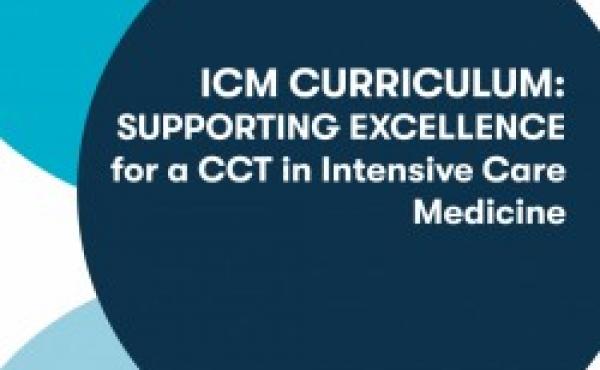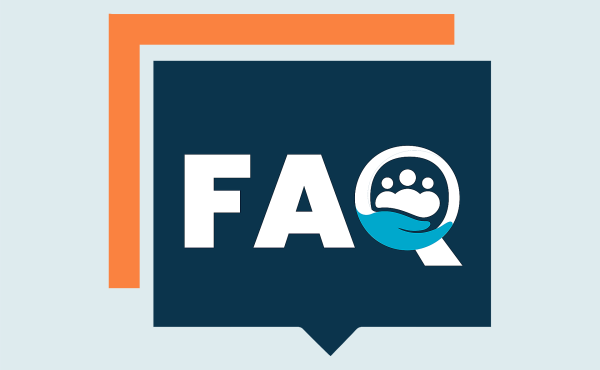Capability Levels in the ICM Curriculum
The following tables explain the Capability Levels used in the ICM Curriculum and the level required for each Stage of the ICM CCT Programme
Whilst the Faculty recognise the value of Entrustable Professional Activities (EPAs), rather than introducing a new assessment, we have further developed the existing use of capability levels (formerly competence levels) to define the level of capability required for progression within each area of practice at the three stages of the ICM training programme. It is felt that this similarly defines when entrustment decisions are made.
Clarification of the expected capability levels for each stage of training allows Intensivists in Training (IiT) to know what level of performance is expected of them and what level of supervision is required within specific areas of practice as they progress through training. It is a core component of the assessment strategy and the target capability levels for each stage of training that are detailed in the table of the Target Capability Levels for the ICM HiLLOs below.
Each capability level has construct-aligned descriptors; narrative scales guide trainees and trainers as to the level of capability expected. These are anchored to real world practice and suggest the degree of entrustability associated with each level (e.g. requiring direct supervision through to independent practice) – see the table below.
|
Level |
Task orientated capability |
Knowledge orientated capability |
Patient management capability |
|
1 |
Performs task under direct supervision. | Very limited knowledge; requires considerable guidance to solve a problem within the area. | Can take history, examine and arrange investigations for straightforward case (limited differential diagnosis). Can initiate emergency management and continue a management plan, recognising acute divergences from the plan. Will need help to deal with these. |
|
2 |
Performs task in straightforward circumstances, requires help for more difficult situations. Understands indications and complications of task. | Sound basic knowledge; requires some guidance to solve a problem within the area. Will have knowledge of appropriate guidelines and protocols. | Can take history, examine and arrange investigations in a more complicated case. Can initiate emergency management. In a straightforward case, can plan management and manage any divergences in short term. Will need help with more complicated cases. |
|
3 |
Performs task in most circumstances, will need some guidance in complex situations. Can manage most complications, has a good understanding of contraindications and alternatives. | Advanced knowledge and understanding; only requires occasional advice and assistance to solve a problem. Will be able to assess evidence critically. | Can take history, examine and arrange investigations in a more complex case in a focused manner. Can initiate emergency management. In a most cases, can plan management and manage any divergences. May need specialist help for some cases. |
|
4 |
Independent (consultant) practice. | Expert level of knowledge. | Specialist. |
Educational Supervisors (ESs) will collate evidence from multiple sources to make overall judgements as to an IiT’s level of capability and therefore their devolved responsibilities and required level of supervision. This judgement is recorded via a capability level scored for each HiLLO via the ePortfolio (FICM LLP). This helps to ensure IiT have the appropriate skills and level of supervision at each Stage of training and thereby embeds prioritisation of public safety within the programme of assessment.
Target Capability Levels for the ICM HiLLOs
The table below provides a high-level description of attainment to be achieved, in each of the HiLLOs, at the end of each stage of training in order to progress to the next.
HiLLO No. |
High-Level Learning Outcomes (HiLLOs) in the Intensive Care Medicine Curriculum |
Expected capability level by end of: |
|||
|---|---|---|---|---|---|
|
- |
- |
STG1 |
STG2 |
STG3 |
|
|
1 |
The doctor will be able to function successfully within NHS organisational and management systems whilst adhering to the appropriate legal and ethical framework. |
2 |
3 |
4 |
|
|
2 |
The doctor will be focused on patient safety and will deliver effective quality improvement, whilst practising within established legal and ethical frameworks. |
2 |
4 |
4 |
|
|
3 |
An Intensive Care Medicine specialist will know how to undertake medical research including the ethical considerations, methodology and how to manage and interpret data appropriately. |
2 |
3 |
4 |
|
|
4 |
To ensure development of the future medical workforce, a doctor working as a specialist in Intensive Care Medicine will be an effective clinical teacher and will be able to provide educational and clinical supervision. |
2 |
3 |
4 |
|
|
5 |
Doctors specialising in Intensive Care Medicine can identify, resuscitate and stabilise a critically ill patient, as well as undertake their safe intra-hospital or inter-hospital transfer to an appropriately staffed and equipped facility. |
2 |
3 |
4 |
|
|
6 |
Intensive Care Medicine specialists will have the knowledge and skills to initiate, request and interpret appropriate investigations and advanced monitoring techniques, to aid the diagnosis and management of patients with organ systems failure. They will be able to provide and manage the subsequent advanced organ system support therapies. This will include both pharmacological and mechanical interventions. |
2 |
3 |
4 |
|
|
7 |
Specialists in Intensive Care Medicine can provide pre-operative resuscitation and optimisation of patients, deliver post-operative clinical care including optimising their physiological status, provide advanced organ system support and manage their pain relief |
2 |
3 |
4 |
|
|
8 |
Doctors specialising in Intensive Care Medicine will understand and manage the physical and psychosocial consequences of critical illness for patients and their families, including providing pain relief, treating delirium and arranging ongoing care and rehabilitation. They will also manage the withholding or withdrawal of life-sustaining treatment, discussing end of life care with patients and their families and facilitating organ donation where appropriate. |
2 |
3 |
4 |
|
|
9 |
Intensive Care Medicine specialists will have the skillset and competence to lead and manage a critical care service, including the multidisciplinary clinical team and providing contemporaneous care to a number of critically ill patients. |
2 |
3 |
4 |
|
|
10 |
Intensive Care Medicine specialists will have developed the necessary skills of induction of anaesthesia, airway control, care of the unconscious patient and understanding of surgery and its physiological impact on the patient. |
2 |
3 |
3 |
|
|
11 |
In order to manage acutely ill patients outside the Intensive Care Unit, an Intensive Care Medicine specialist will have the diagnostic, investigational and patient management skills required to care for ward-based patients whose condition commonly requires admission to the intensive care unit. |
3 |
3 |
3 |
|
|
12 |
Doctors specialising in Intensive Care Medicine understand the special needs of, and are competent to manage patients with neurological diseases, both medical and those requiring surgery, which will include the management of raised intracranial pressure, central nervous system infections and neuromuscular disorders. |
1 |
3 |
3 |
|
|
13 |
A specialist in adult Intensive Care Medicine is competent to recognise, provide initial stabilisation and manage common paediatric emergencies until expert advice or specialist assistance is available. They are familiar with legislation regarding safeguarding children in the context of Intensive Care Medicine practice. |
1 |
3 |
3 |
|
|
14 |
Intensive Care Medicine specialists recognise the special needs of and are competent to provide the perioperative care to patients who have undergone cardiothoracic surgery, including providing pain relief and advanced organ system support utilising specialised techniques available to support the cardiovascular system. |
1 |
3 |
3 |
|
You can download this grid via the document download link below



